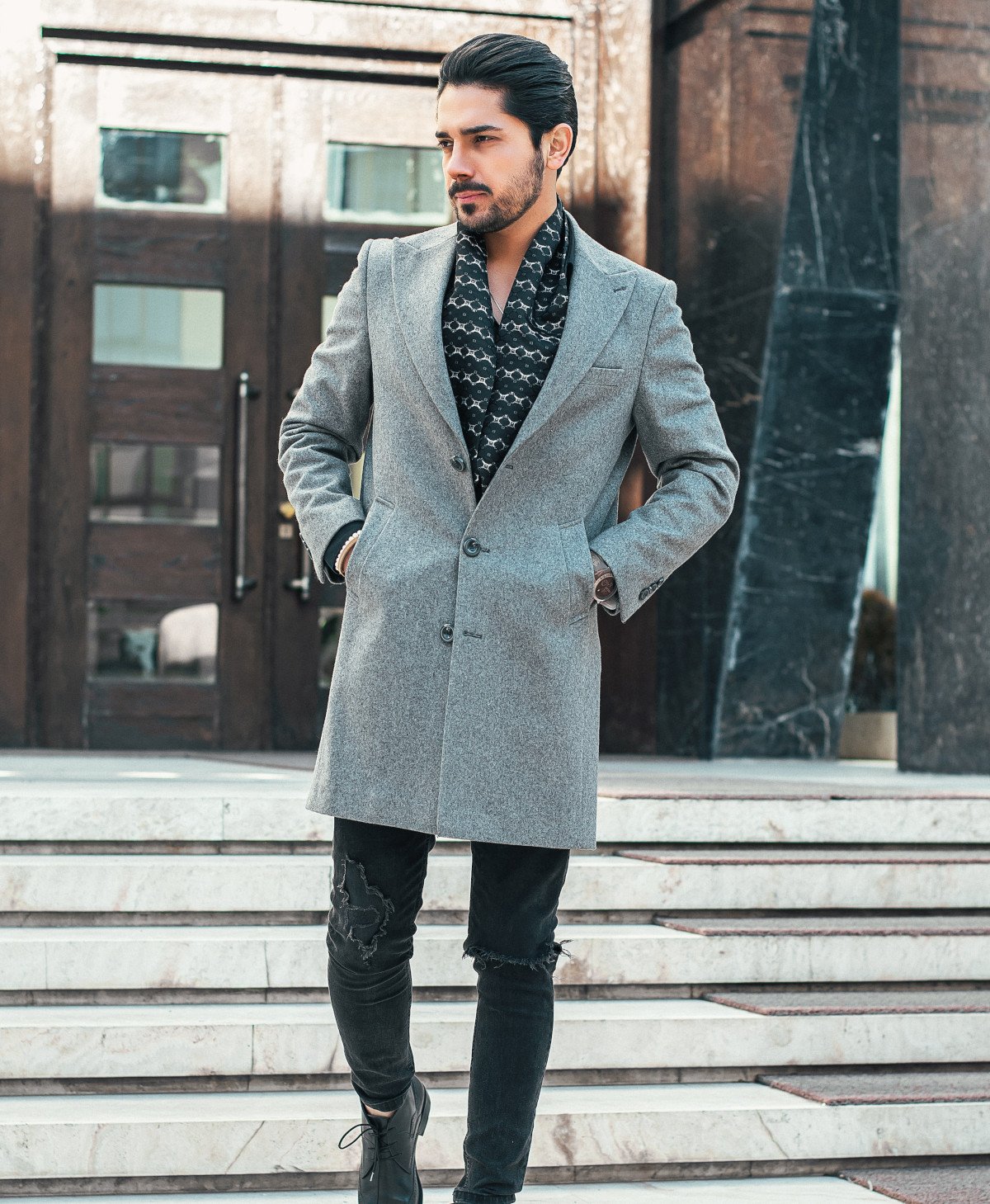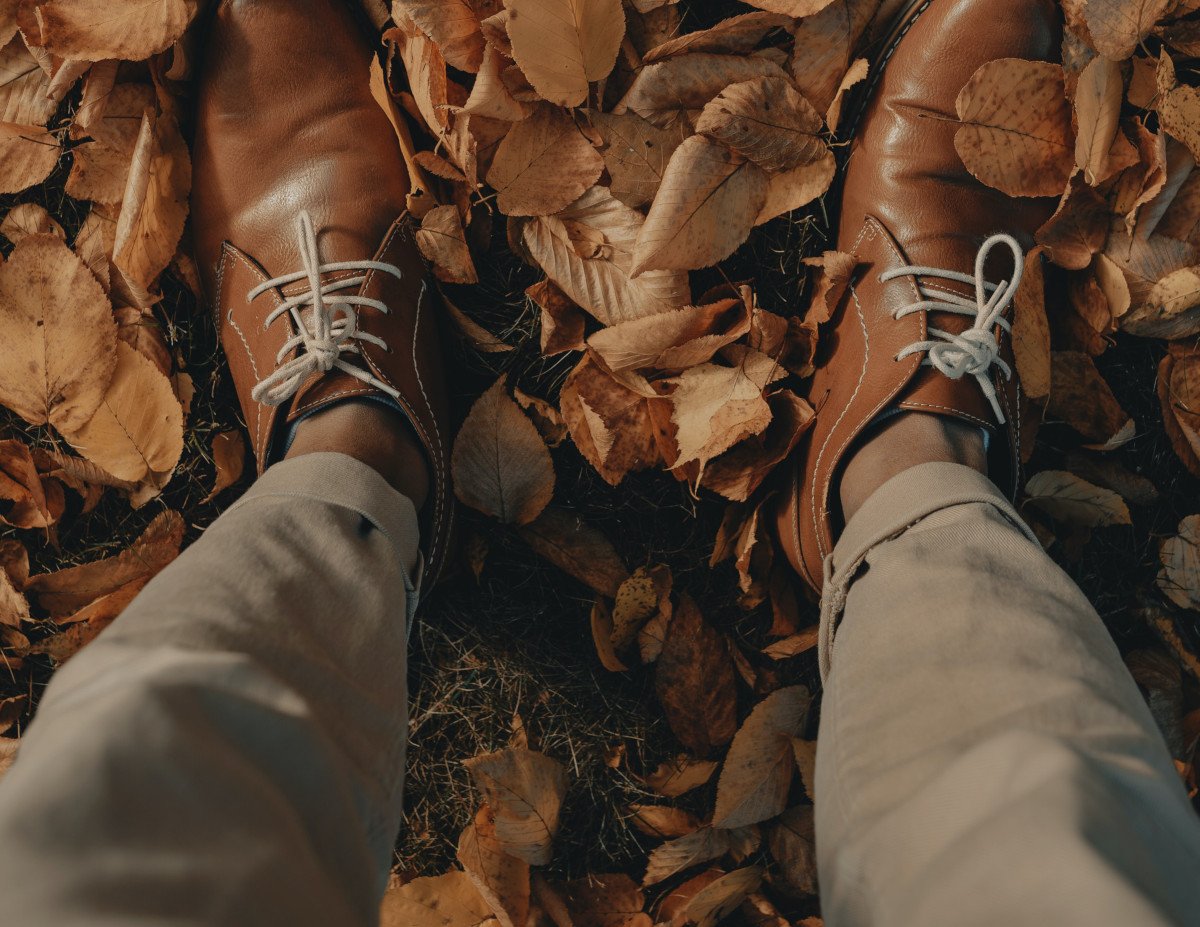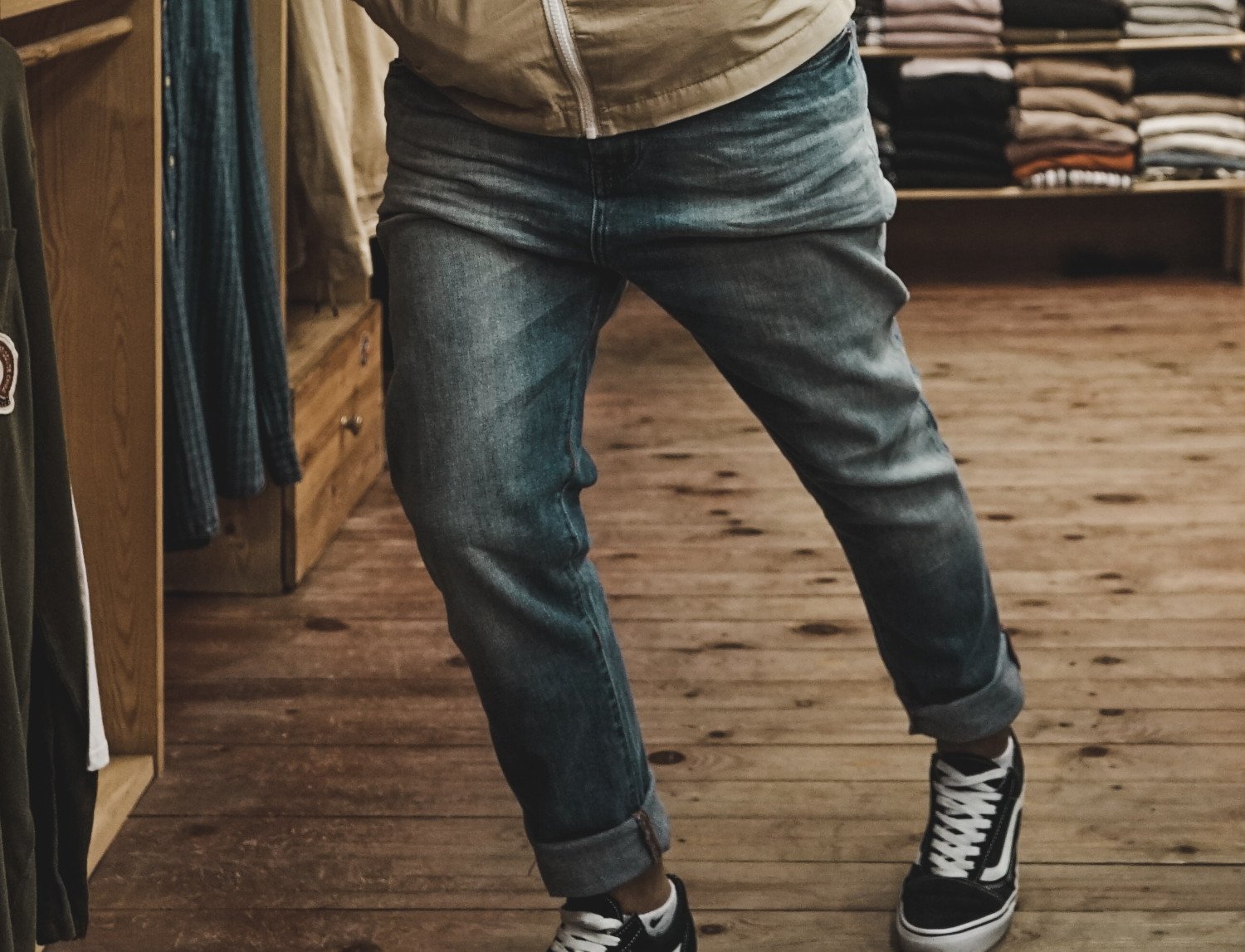How Dress Shirts Should Fit: The Complete Guide
If the thought of putting on your dress shirt disheartens you, and you find yourself looking forward to the moment you can finally take it off - you probably don't have dress shirts that fit you right. Dress shirts aren't supposed to be uncomfortable, tight, or itchy.
When you have the right fit - you'll find yourself looking forward to putting it on. The right-fitting dressing shirt doesn't just feel comfortable on your body - it helps you look good, too. Let's face it - the well-dressed man is in short supply these days.
Finding dress shirts that fit isn't easy. Off-the-rack shopping is rarely going to accommodate your unique measurements and style preferences. More and more men are realizing that in order to find dress shirts that fit properly, you need to go custom.
But before you can begin your custom dress shirt journey - it's important to learn how dress shirts should fit. And that's exactly what we're here to address today. We'll explain how a dress shirt should fit in all aspects: the sleeves, neck, width, and length. By the end of this quick guide, you'll be a fitting expert and well on your way to finding the perfect fit on your next shopping trip.
Why Bother Learning How A Dress Shirt Should Fit?
Learning how dress shirts should fit is important for every working professional. But, even those who only wear dress shirts on occasion need to keep a well-fitting shirt in their wardrobe. It's not just about comfort - but it's also about looking good.
Comfort
Dress shirts are typically not as stretchy and soft as your favorite gym t-shirt. As such, getting the perfect fit is essential for comfort. Otherwise, you'll feel restricted in your movements. Your arms and neck will get suffocated if the shirt is too tight, and you'll find yourself constantly adjusting the lay if your shirt is too loose.
With the proper fit, a dress shirt will actually be more comfortable than anything else in your closet. You'll find yourself looking forward to getting dressed for work or a night out. And that's not just because a well-fitting dress shirt feels good - it looks good, too.
Style
We've all seen the guy wearing clothes that don't fit his body. It's an unsightly look, and gives off scattered, messy vibes. You won't look professional in a dress shirt if you're busting out of the seams or have excess fabric hanging around your elbows, extending over your wrists, or popping out of your pants.
With the perfect fit, you'll look dapper as can be. You're dressing to impress - so get the fit right, or you've already lost. So without any further ado - let's talk about how a dress shirt should fit.
How A Dress Shirt Should Fit: Everything You Need To Know
Fitting dress shirts can be tricky. There is a fine line between too tight and too loose. And, there are so many different aspects you need to consider when fitting your shirt, too. You need to consider how it fits on your arms and shoulders - not just in the dress sleeve length, but the width, too.
You also need to consider the dress shirt collar fit. The last thing you want is to feel your jugular getting crushed - or worse, being unable to get that final button secured. Finally, consider how long and wide the dress shirt is in relation to your torso. We'll start by helping you fit a dress shirt on your arms and shoulders.
How Should A Dress Shirt Fit In The Arms?
You need to consider both the dress shirt sleeve length and width when taking your measurements and picking out a shirt. If the sleeves are too tight on your arms, you'll look like you're trying too hard to show off your work in the gym. You'll feel restrictions in movement at the elbow, too. But if the sleeves are too loose on your arms, wrinkles will show throughout the sleeve with excess fabric folding over the wrist cuff.
Tailors will tell you - the width of your shirt sleeves are the hardest aspect of sizing shirts. You should have enough room in your arms to move freely and comfortably without any excess fabric. You should also consider how the shirt fits with a jacket or coat on top of it. If it's too loose of a fit, you'll have a hard time comfortably layering up.
In terms of dress shirt sleeve length, you want it to stop right at the break of your wrist. If you can't see the start of your hand, it's too long. Conversely, if you can see your wrist before the break, the sleeve is too short.
You can throw on a watch to help you get the correct sleeve length. When your arm is resting straight down, only about 50% of the watch should be visible. If you can see your entire watch, the sleeve is likely too short. If you can't see the watch at all, your sleeve is too long. You can also pull on a jacket when trying on shirts - you should be able to see about half an inch (1/2") of sleeve cuff extending through the jacket sleeves.
But, what about the sleeve cuffs themselves? This part of the shirt is pretty easy to fit correctly. For the most part, it comes down to personal preference. Consider what is most comfortable for you. Regardless, you should be able to get a finger inside the cuff easily - if not, it's too tight. If you want to be able to remove the dress shirt without unbuttoning the wrist cuff, you can size up here.
How Should A Dress Shirt Fit On The Shoulders?
Along with how the sleeves of your shirt fit around your arms and wrists, consider how they fit on your shoulder. To get the right fit, you'll need to understand what the shoulder seam is. Shoulder seams are simply the line from the neck of the shirt to the opening of the arm sleeves. If the seam ends before the edge of your shoulder - it'll be too tight. If your seam extends past your shoulders - it's too loose.
The shoulder seam should fall along the line of your shoulders. A natural fit will allow you to raise your arms and rotate them around without the shoulder seam tensing up. If the shoulder seam is too tight or too high up, you'll feel it in your chest as well. You can easily size this one by getting the measurement from your neckline to your shoulder.
How Should A Dress Shirt Fit Around The Neck?
Next in your sizing endeavors comes the dress shirt collar fit. Ideally, you should feel the collar fabric touching your neck all the way around with no gaps. But - it shouldn't be squeezing your neck or causing discomfort. Similar to sizing your shirt cuff, you should be able to fit a finger in your neckline with ease. If not, it's too tight. And if you can fit more than one finger, the collar is too loose.
Similar to sizing your shoulder seams, getting the proper dress shirt collar fit is simple. Just take a measurement around your neck. Collars run from as small as 14" to as large as 18" - and can be sized in quarter inches. To get the perfect fit, get as close to your measurements as you can. A 16.5" collar may be too big, and a 16" collar may be too small. You should be able to find a 16.25" collar - so don't compromise.
How Should A Dress Shirt Fit On The Torso?
Now - how should a dress shirt fit on the torso of your body? We're going to talk about both the length and width of your torso here. You'll need to take multiple measurements to get an accurate size. In general, though, your torso fit should hug your body comfortably. These days, a modern dress shirt should fit pretty slim. But, personal preference also plays a role here. If you don't like the slim fit dress shirt look or feel, you can make adjustments.
First and foremost, consider how the shirt fits around your chest. This is typically the widest part of the shirt, and it should taper down at the waist. Your buttons shouldn't feel like they're being pulled or stretched - but they shouldn't be sitting loosely either. You want them sitting neatly in a vertical line down your body.
But what about the proper dress shirt length? Don't make the mistake of thinking longer is better. Sure - that extra fabric will be tucked into your dress pants. But, if there is too much extra fabric, you may see it through your slacks. This is unsightly, and dress shirts that are too long can be pretty uncomfortable too. This one is pretty easy - the bottom of your shirt should fall just an inch or two below your belt line. If you can see your belt line when the shirt is untucked - it's too short. On the other hand, if your shirt extends past your pockets - it's too long.
How Do You Know If A Dress Shirt Is Too Big or Too Small?
Now you have a better idea of how your dress shirts should fit. Size accordingly, and you should end up with the perfect fit. There are a few tests you can conduct after getting your shirt to assess the fit. Here are some ways to tell if your dress shirt is too big:
How Should A Dress Shirt Fit When Sitting?
Many people overlook how their button up shirt should fit when sitting. Most of the time, you'll try on shirts and get your measurements while standing. When you sit down wearing your button-up shirt, you shouldn't feel any sort of tension on the buttons or on your shoulders. If you do, the shirt is likely a bit too small.
Implement The Finger Test
As we mentioned throughout this guide, you should be able to fit just one finger between the access points on your button-up shirt. Stick your index finger into the collar and into the sleeve cuff. If you can't get past your knuckle, the shirt is too small. Contrarily, if you can fit a knuckle too easily - and follow with a second finger - the shirt is too loose.
Get The Proper Dress Shirt Fit Every Time At Blank Label
The honest reality is that sizing your dress shirt alone isn't a great idea. Why not let the menswear specialists at Blank Label do the hard work for you? Head over to our site and find the best selection of custom dress shirts online.
We can help you get expertly crafted garments that fit your body to perfection. And - they'll fit your lifestyle, too. Let us help you navigate workplace dress codes or make style recommendations for an upcoming event. For the past 10 years, we've come to be known as the premier custom clothier online. Experience the Blank Label difference for yourself - and you'll never go back to traditional retail shopping off the racks again.






